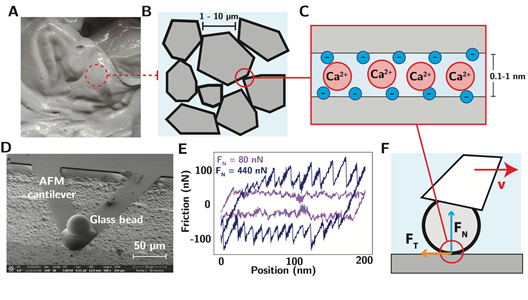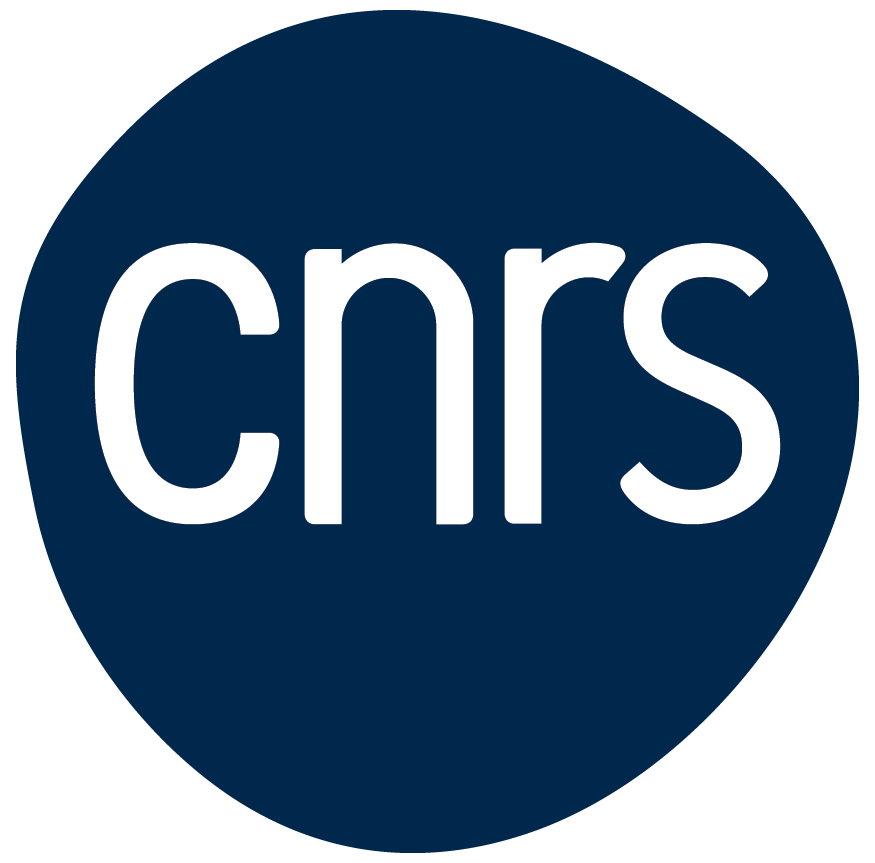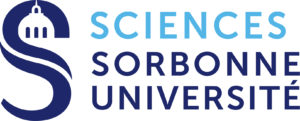Proposition de stage M2+PhD
Laboratoire Sciences et Ingénierie de la Matière Molle, (SIMM)
Adresse : ESPCI, 10 Rue Vauquelin 75005 Paris
Directeur du laboratoire : Etienne Barthel
Responsables du stage : J. Comtet, N. Sanson, B. Bresson

Figure. (A) Cement paste. (B) Local microstructure with interacting micrometric grains. (C) Emergence of local contact forces between grains due to ion-specific interactions (here bridging due to Ca2+ ions). (D) SEM image of the colloidal cantilever-based AFM. (E-F) Local friction measurements and typical friction traces obtained with the AFM.
Cement-based materials are ubiquitous but raise major concerns with respect to their environmental impact. The development of new binders, more sustainable than traditional cements, requires better understanding of the physical mechanisms behind their behavior. On the academic side, these complex materials can be seen as dense suspensions of interacting particles (Fig. B), with their macroscopic behavior accordingly set by local nanoscale mechanical interactions between grains (adhesion, friction etc…). What drives these local interactions and how do they relate to material formulation remains however poorly understood, due in particular to the peculiar conditions set by the high molarity and high pH of the aqueous solution, as well as the possible occurrence of ion-specific effects in these nanoconfined contacts.
The aim of this internship is to gain novel insights on the nanoscale mechanical interactions taking place in these peculiar physicochemical conditions. To do so, we will rely on local Atomic Force Microscopy measurements of the contact strength and frictional interactions between a model system of silica surfaces in aqueous-based solutions (Fig. D-F). Preliminary results have allowed us to evidence a rich phase behavior in such conditions, and a key role of the electrolyte composition. We aim here at pushing these measurements further, exploring in particular the role of the local frictional history on the contact strength, and its relation to ion-specific effects. We expect to get novel insights into the molecular processes at play in these nanoconfined contacts (e.g. why do Ca2+ ions seem to act as glue ?), up to their influence on the macroscopic strength of the material. More generally, our approach provides novel methodologies to rationalize through nanoscopic measurements, the interplay between material formulation and rheology, which is key for the future development of more sustainable construction materials.
We are looking for a student strongly motivated by experimental work involving custom-made Atomic Force Microscopy experiments, and with strong a background in physics (soft matter, hydrodynamics, mechanics) or physicochemistry. This internship is funded by Saint-Gobain Research, and regular interactions with this industrial partner are expected. This internship can be followed by a PhD (industrial funding under discussion, other funding opportunities on related topics could be envisioned). This internship can be followed by an industrially funded Cifre PhD.
References.
• Comtet et al. (2017). Nature communications , 8(1), 15633. http://doi.org/10.1038/ncomms15633
• Del Gado et al. (2021). Science Advances , 7(32), eabg5882. http://doi.org/10.1126/sciadv.abg5882


